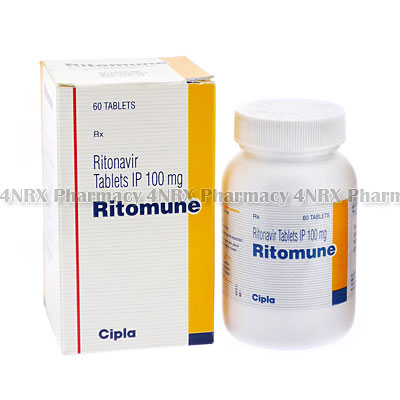 |
Home  HIV Treatments HIV Treatments  Ritomune (Ritonavir) Ritomune (Ritonavir) |
|
|||||||||
|
Ritomune (Ritonavir)
What is Ritomune (Ritonavir) used for? Ritomune (Ritonavir) is used in combination with other drugs to treat HIV infections. This drug belongs to a class of antiviral drugs known as protease inhibitors, which work by helping to slow the spread of HIV infections. It is important to note that this medication will not cure HIV, and may also not reduce HIV related illnesses, nor will use of this drug will not prevent the transmission of HIV to others. How should I use Ritomune (Ritonavir)? Ritomune (Ritonavir) tablets are taken orally, with food. Patients are sometimes directed to take this drug twice per day. It is important to note that the dosage may vary, depending on body weight and response to treatment. Therefore, patients are advised to consult their physician before taking this drug so that the correct dosage can be prescribed. What are the side effects of Ritomune (Ritonavir)? Some side effects which may occur as a result of taking Ritomune (Ritonavir) include:
You should consult your physician immediately if any of these side effects persist or worsen, or if you notice any other more serious side effects, such as a slow heartbeat, an increase in urination, signs of infection, unusual bruising, fever, severe abdominal pain or yellowing of the eyes or skin. Please Note Strictly follow all instructions provided to you by your physician or pharmacist while using Ritomune (Ritonavir). Optimum and safe dosage can differ based on the patient and the condition being treated. As this medication may be unsafe for certain patients, it is essential you always inform your physician if you are pregnant or breastfeeding, as well as if you have any allergies, other illnesses, or ongoing health conditions, and if you are taking any other form of medication, supplements, or herbal products. Once you have been prescribed this medication, it is important to continue taking it unless told otherwise by your physician. Immediately seek emergency medical care if you have any allergic or hypersensitive reaction. Common signs of a reaction include hives, swelling, skin rashes, chest pains, as well as trouble breathing or swallowing. 
|
|||||||||||||||||